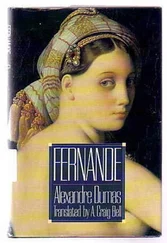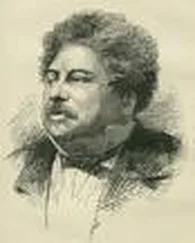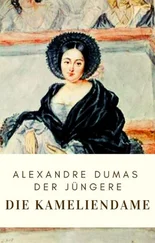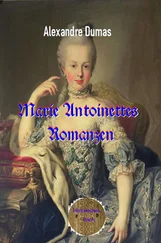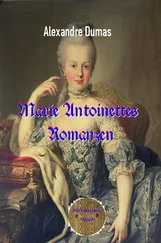Alexandre Dumas - Mary Stuart
Здесь есть возможность читать онлайн «Alexandre Dumas - Mary Stuart» — ознакомительный отрывок электронной книги совершенно бесплатно, а после прочтения отрывка купить полную версию. В некоторых случаях можно слушать аудио, скачать через торрент в формате fb2 и присутствует краткое содержание. Жанр: literature_19, foreign_antique, foreign_prose, на английском языке. Описание произведения, (предисловие) а так же отзывы посетителей доступны на портале библиотеки ЛибКат.
- Название:Mary Stuart
- Автор:
- Жанр:
- Год:неизвестен
- ISBN:нет данных
- Рейтинг книги:3 / 5. Голосов: 1
-
Избранное:Добавить в избранное
- Отзывы:
-
Ваша оценка:
- 60
- 1
- 2
- 3
- 4
- 5
Mary Stuart: краткое содержание, описание и аннотация
Предлагаем к чтению аннотацию, описание, краткое содержание или предисловие (зависит от того, что написал сам автор книги «Mary Stuart»). Если вы не нашли необходимую информацию о книге — напишите в комментариях, мы постараемся отыскать её.
Mary Stuart — читать онлайн ознакомительный отрывок
Ниже представлен текст книги, разбитый по страницам. Система сохранения места последней прочитанной страницы, позволяет с удобством читать онлайн бесплатно книгу «Mary Stuart», без необходимости каждый раз заново искать на чём Вы остановились. Поставьте закладку, и сможете в любой момент перейти на страницу, на которой закончили чтение.
Интервал:
Закладка:
CHAPTER II
Among the lords who had followed Mary Stuart to Scotland was, as we have mentioned, a young nobleman named Chatelard, a true type of the nobility of that time, a nephew of Bayard on his mother’s side, a poet and a knight, talented and courageous, and attached to Marshal Damville, of whose household he formed one. Thanks to this high position, Chatelard, throughout her stay in France, paid court to Mary Stuart, who, in the homage he rendered her in verse, saw nothing more than those poetical declarations of gallantry customary in that age, and with which she especially was daily overwhelmed. But it happened that about the time when Chatelard was most in love with the queen she was obliged to leave France, as we have said. Then Marshal Damville, who knew nothing of Chatelard’s passion, and who himself, encouraged by Mary’s kindness, was among the candidates to succeed Francis II as husband, set out for Scotland with the poor exile, taking Chatelard with him, and, not imagining he would find a rival in him, he made a confidant of him, and left him with Mary when he was obliged to leave her, charging the young poet to support with her the interests of his suit. This post as confidant brought Mary and Chatelard more together; and, as in her capacity as poet, the queen treated him like a brother, he made bold in his passion to risk all to obtain another title. Accordingly, one evening he got into Mary Stuart’s room, and hid himself under the bed; but at the moment when the queen was beginning to undress, a little dog she had began to yelp so loudly that her women came running at his barking, and, led by this indication, perceived Chatelard. A woman easily pardons a crime for which too great love is the excuse: Mary Stuart was woman before being queen – she pardoned.
But this kindness only increased Chatelard’s confidence: he put down the reprimand he had received to the presence of the queen’s women, and supposed that if she had been alone she would have forgiven him still more completely; so that, three weeks after, this same scene was repeated. But this time, Chatelard, discovered in a cupboard, when the queen was already in bed, was placed under arrest.
The moment was badly chosen: such a scandal, just when the queen was about to re-marry, was fatal to Mary, let alone to Chatelard. Murray took the affair in hand, and, thinking that a public trial could alone save his sister’s reputation, he urged the prosecution with such vigour, that Chatelard, convicted of the crime of lese-majeste, was condemned to death. Mary entreated her brother that Chatelard might be sent back to France; but Murray made her see what terrible consequences such a use of her right of pardon might have, so that Mary was obliged to let justice take its course: Chatelard was led to execution. Arrived on the scaffold, which was set up before the queen’s palace, Chatelard, who had declined the services of a priest, had Ronsard’s Ode on Death read; and when the reading, which he followed with evident pleasure, was ended, he turned – towards the queen’s windows, and, having cried out for the last time, “Adieu, loveliest and most cruel of princesses!” he stretched out his neck to the executioner, without displaying any repentance or uttering any complaint. This death made all the more impression upon Mary, that she did not dare to show her sympathy openly.
Meanwhile there was a rumour that the queen of Scotland was consenting to a new marriage, and several suitors came forward, sprung from the principal reigning families of Europe: first, the Archduke Charles, third son of the Emperor of Germany; then the Duke of Anjou, who afterwards became Henry III. But to wed a foreign prince was to give up her claims to the English crown. So Mary refused, and, making a merit of this to Elizabeth, she cast her eyes on a relation of the latter’s, Henry Stuart, Lord Darnley, son of the Earl of Lennox. Elizabeth, who had nothing plausible to urge against this marriage, since the Queen of Scotland not only chose an Englishman for husband, but was marrying into her own family, allowed the Earl of Lennox and his son to go to the Scotch court, reserving it to herself, if matters appeared to take a serious turn, to recall them both – a command which they would be constrained to obey, since all their property was in England.
Darnley was eighteen years of age: he was handsome, well-made, elegant; he talked in that attractive manner of the young nobles of the French and English courts that Mary no longer heard since her exile in Scotland; she let herself be deceived by these appearances, and did not see that under this brilliant exterior Darnley hid utter insignificance, dubious courage, and a fickle and churlish character. It is true that he came to her under the auspices of a man whose influence was as striking as the risen fortune which gave him the opportunity to exert it. We refer to David Rizzio.
David Rizzio, who played such a great part in the life of Mary Stuart, whose strange favour for him has given her enemies, probably without any cause, such cruel weapons against her, was the son of a Turin musician burdened with a numerous family, who, recognising in him a pronounced musical taste, had him instructed in the first principles of the art. At the age of fifteen he had left his father’s house and had gone on foot to Nice, where the Duke of Savoy held his court; there he entered the service of the Duke of Moreto, and this lord having been appointed, some years afterwards, to the Scottish embassy, Rizzio followed him to Scotland. As this young man had a very fine voice, and accompanied on the viol and fiddle songs of which both the airs and the words were of his own composition, the ambassador spoke of him to Mary, who wished to see him. Rizzio, full of confidence in himself, and seeing in the queen’s desire a road to success, hastened to obey her command, sang before her, and pleased her. She begged him then of Moreto, making no more of it than if she had asked of him a thoroughbred dog or a well-trained falcon. Moreto presented him to her, delighted at finding such an opportunity to pay his court; but scarcely was Rizzio in her service than Mary discovered that music was the least of his gifts, that he possessed, besides that, education if not profound at least varied, a supple mind, a lively imagination, gentle ways, and at the same time much boldness and presumption. He reminded her of those Italian artists whom she had seen at the French court, and spoke to her the tongue of Marot and Ronsard, whose most beautiful poems he knew by heart: this was more than enough to please Mary Stuart. In a short time he became her favourite, and meanwhile the place of secretary for the French despatches falling vacant, Rizzio was provided for with it.
Darnley, who wished to succeed at all costs, enlisted Rizzio in his interests, unconscious that he had no need of this support; and as, on her side, Mary, who had fallen in love with him at first sight, fearing some new intrigue of Elizabeth’s, hastened on this union so far as the proprieties permitted, the affair moved forward with wonderful rapidity; and in the midst of public rejoicing, with the approbation of the nobility, except for a small minority, with Murray at its head, the marriage was solemnised under the happiest auspices, 29th July 1565. Two days before, Darnley and his father, the Earl of Lennox, had received a command to return to London, and as they had not obeyed it, a week after the celebration of the marriage they learned that the Countess of Lennox, the only one of the family remaining in Elizabeth’s power, had been arrested and taken to the Tower. Thus Elizabeth, in spite of her dissimulation, yielding to that first impulse of violence that she always had such trouble to overcome, publicly displayed her resentment.
However, Elizabeth was not the woman to be satisfied with useless vengeance: she soon released the countess, and turned her eyes towards Murray, the most discontented of the nobles in opposition, who by this marriage was losing all his personal influence. It was thus easy for Elizabeth to put arms in his hand. In fact, when he had failed in his first attempt to seize Darnley, he called to his aid the Duke of Chatellerault, Glencairn, Argyll, and Rothes, and collecting what partisans they could, they openly rebelled against the queen. This was the first ostensible act of that hatred which was afterwards so fatal to Mary.
Читать дальшеИнтервал:
Закладка:
Похожие книги на «Mary Stuart»
Представляем Вашему вниманию похожие книги на «Mary Stuart» списком для выбора. Мы отобрали схожую по названию и смыслу литературу в надежде предоставить читателям больше вариантов отыскать новые, интересные, ещё непрочитанные произведения.
Обсуждение, отзывы о книге «Mary Stuart» и просто собственные мнения читателей. Оставьте ваши комментарии, напишите, что Вы думаете о произведении, его смысле или главных героях. Укажите что конкретно понравилось, а что нет, и почему Вы так считаете.

